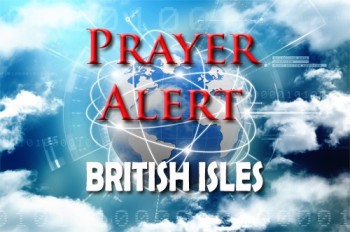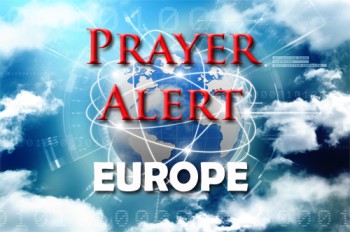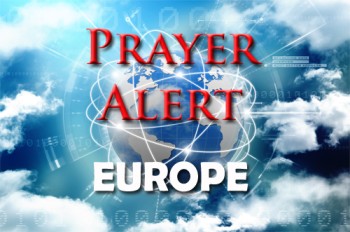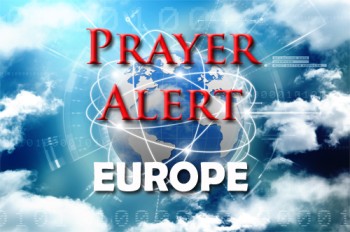Counter-terrorism police investigating Kneecap videos
Counter-terrorist police are investigating videos of Irish-language rap trio Kneecap, recorded at gigs in 2023 and 2024. The videos appear to show band members encouraging violence against British MPs and expressing support for proscribed terror groups Hamas and Hezbollah. Kneecap has denied inciting violence, saying the clips were taken out of context, and offered apologies to the families of murdered MPs David Amess and Jo Cox. The controversy, which follows backlash from the band’s Gaza-related statements at a concert in the USA, has led to sponsorship and booking losses. Major artists have signed a statement supporting Kneecap, opposing what they call political censorship and suppression of artistic freedom. Kneecap, known for provocative lyrics and nationalist themes, rose to prominence in Ireland and were the subject of a Bafta-winning film featuring Michael Fassbender.
Ukraine: Putin announces three-day ceasefire
Vladimir Putin has announced a new three-day unilateral ceasefire, to run from 8 to 10 May, coinciding with Russia’s World War II commemorations. It follows a previous thirty-hour Easter ceasefire, which critics say Moscow repeatedly violated. The Kremlin frames these brief pauses as humanitarian gestures; Ukrainian officials argue that if Russia truly sought peace, it would halt hostilities immediately. Foreign minister Andrii Sybiha called for a thirty-day truce instead. Observers question whether Putin’s moves are sincere peace efforts or merely an attempt to influence Donald Trump, who has recently voiced frustration with both Russia and Ukraine. Trump has criticised Putin for continuing attacks on civilian areas and floated harsher sanctions. When in March he proposed a thirty-day ceasefire, Ukraine agreed, but Russia did not. In another development, the much-anticipated natural resources agreement between the USA and Ukraine has been signed: see
Spain / Portugal: cause of massive power cut still not known
A widespread power cut on 28 April disrupted millions across Spain and Portugal, prompting investigations and huge public concern. Portugal’s national grid operator, REN, attributed the blackout to a rare atmospheric phenomenon which caused extreme temperature shifts, leading to unusual oscillations in electrical lines. This explanation contrasts with speculation in Spain about a possible cyber attack, which their national security agency is still investigating. There is still no clear explanation of the disruption. It brought significant consequences: public transport stopped, mobile networks failed, and contactless payment systems were disabled. Panic buying swept through supermarkets, echoing scenes from the Covid pandemic. Three deaths have also been recorded in Spain. REN said recovery could take up to a week, though prime minister Luis Montenegro predicted that it would be quicker.
Türkiye: ‘treat Istanbul quake as a serious warning’
The recent 6.2 magnitude earthquake which struck Istanbul on 23 April is being seen as a serious warning rather than a release of seismic energy, according to Japanese earthquake expert Yoshinori Moriwaki. While the quake caused no fatalities, he warned that a larger quake, possibly over magnitude 7.0, is likely in the coming twelve to fifteen years. Istanbul lies near the North Anatolian Fault (NAF), a historically active fault line responsible for many major earthquakes across Türkiye. Moriwaki explained that the NAF, along with the South Marmara Fault, poses a continued risk to the Marmara region, with Istanbul particularly vulnerable due to soft ground in coastal districts. He urged residents not to panic but to be prepared, looking for ground stability and building regulations when choosing homes. The April quake triggered hundreds of aftershocks and follows patterns seen in destructive historical events. Despite the threat, Moriwaki remains hopeful that awareness and preparation can mitigate future damage and save lives.











